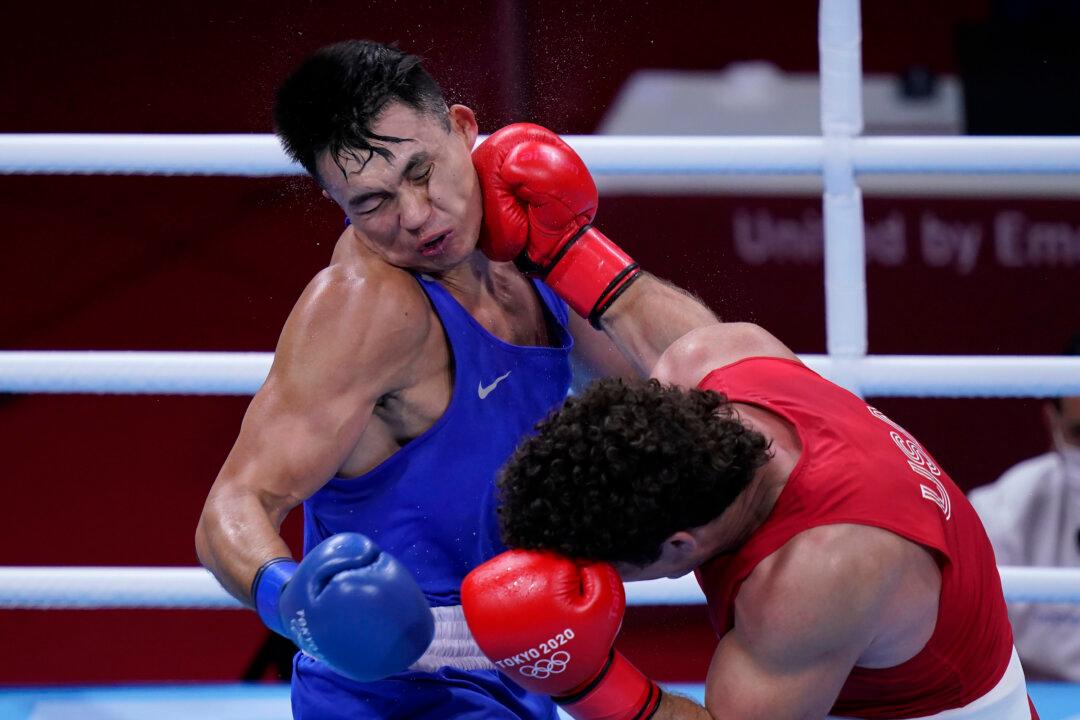TOKYO—Richard Torrez Jr. went into the Olympic boxing ring on Wednesday with a game plan jointly concocted over the phone by his father back home in central California and by Billy Walsh, his national team’s head coach in Tokyo.
The 22-year-old super heavyweight from Tulare then executed the plan perfectly and repeatedly until his Kazakh opponent’s face was split too far open to continue the third round, thanks to a brutal barrage of Torrez’s confounding overhand lefts.





